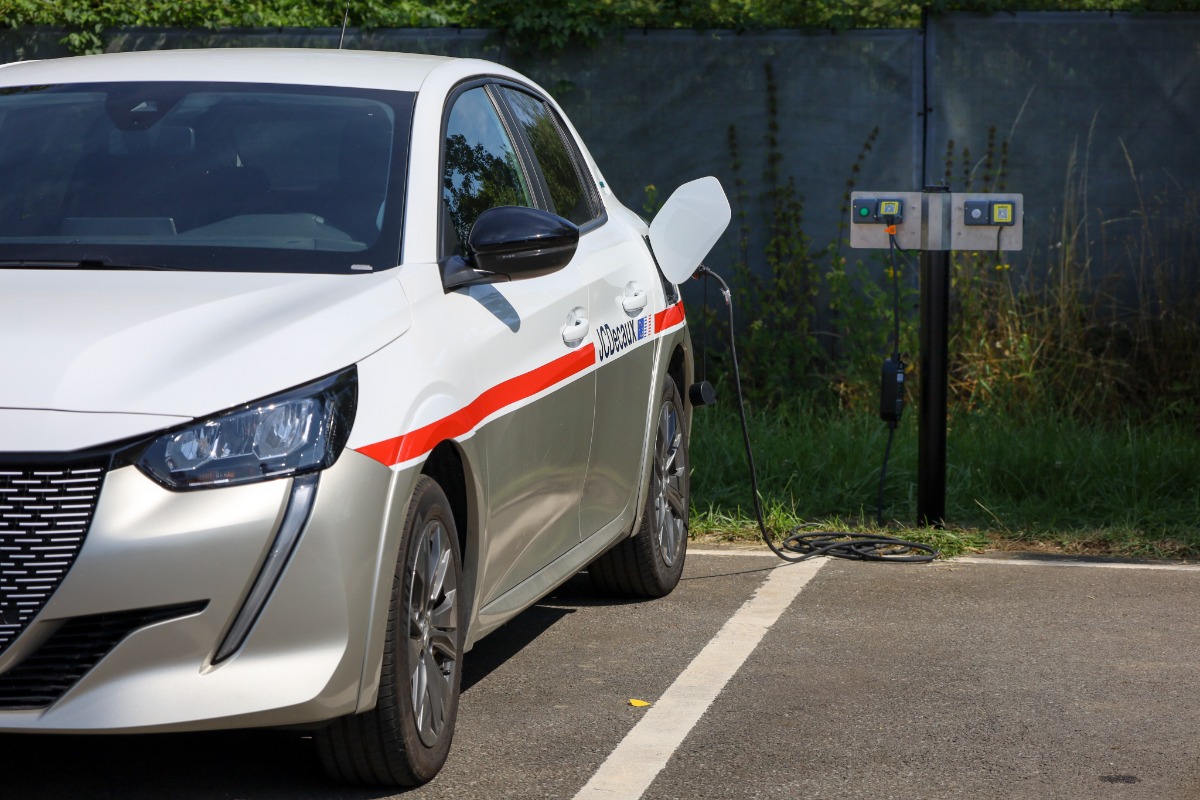

The Solutions Explorer lets you create alerts that match your needs. You can create several alerts and you will receive a notification each time a new Solar Impulse Efficient Solutions is labelled and matches your filters.
Your Search Alerts will show up here.
Sign in to create alerts for your filters and search terms.
Sign inDon't have an account?
Sign upAccess exclusive opportunities for Investor Members Only
The Investment Hub is a platform by the Solar Impulse Foundation that connects innovators with investors to fund scalable and sustainable solutions. Through tailored matchmaking, e-pitches, and a collaborative digital environment, it helps drive impactful innovation forward.
Sign in to explore a world of dynamic and high-potential investment opportunities.
Sign inDon't have an account?
Sign upJune 1, 2024
JCDecaux
Paris

As corporate car fleets transition to electric vehicles, the cost and complexity of charging infrastructure often slow deployment. Conventional 7.4 kW wallboxes cost around €1,000 each, require expensive electrical works, and involve regular maintenance, making them difficult to install at scale.
JCDecaux, a global advertising company, faced this issue as it expanded the electrification of its company cars. To overcome it, the company adopted EVA and ELISA low-power charging sockets: compact 3.7 and 7.4 kW sockets, allowing more vehicles to be charged within the same grid connection
The innovation lies in the simplified hardware. Unlike conventional wallboxes, EVA and ELISA devices were stripped of most embedded “smart” functions (such as access control, payment, or load management) and moved to the cloud-based supervision software. This radically simplified, plug-and-play architecture reduced internal complexity, cut costs, and lowered the risk of malfunction - while still giving operators access to advanced administration features.
The first deployment of 30+ sockets delivered immediate savings. Compared to the €1,000 wallboxes JCDecaux previously used, EVA and ELISA sockets (€60 and €100 each) cut costs by around 60% per parking space, once electrical works were included. Savings came not only from cheaper hardware, but also from 30% lower electrical works.
Maintenance savings were equally significant. By avoiding these expenses, JCDecaux saved €5,000 to €7,000 in maintenance costs during the pilot - and expects to save around €5,000 annually going forward.
We provide low-power smart charging devices to corporate, condominiums or public parkings, everywhere cars, bikes or scooters are parked for a long time during the day or at night. Our focus on low power charging result in a super cost-effective solution, inexpensive and easy to deploy solution. Because we are convinced that in order to become a common service of any parking, charging sockets have to become a commodity and be priced as such.
Share
The information set out above, is solely for the purposes of information and the Solar Impulse Foundation does not provide any guarantee as to its authenticity, completeness or accuracy. This information does not constitute investment advice or a recommendation to buy into, transact or to enter into any agreement with any of the parties or persons mentioned above. Potential investors or interested parties are solely responsible for their investment or business decisions and for performing any due diligence required by the circumstances. The innovator has asserted ownership of the intellectual property rights for images, videos, and content showcased above, affirming full and unrestricted usage rights, and has provided explicit permission for the Solar Impulse Foundation to publish such information designated as "public" in the application form.